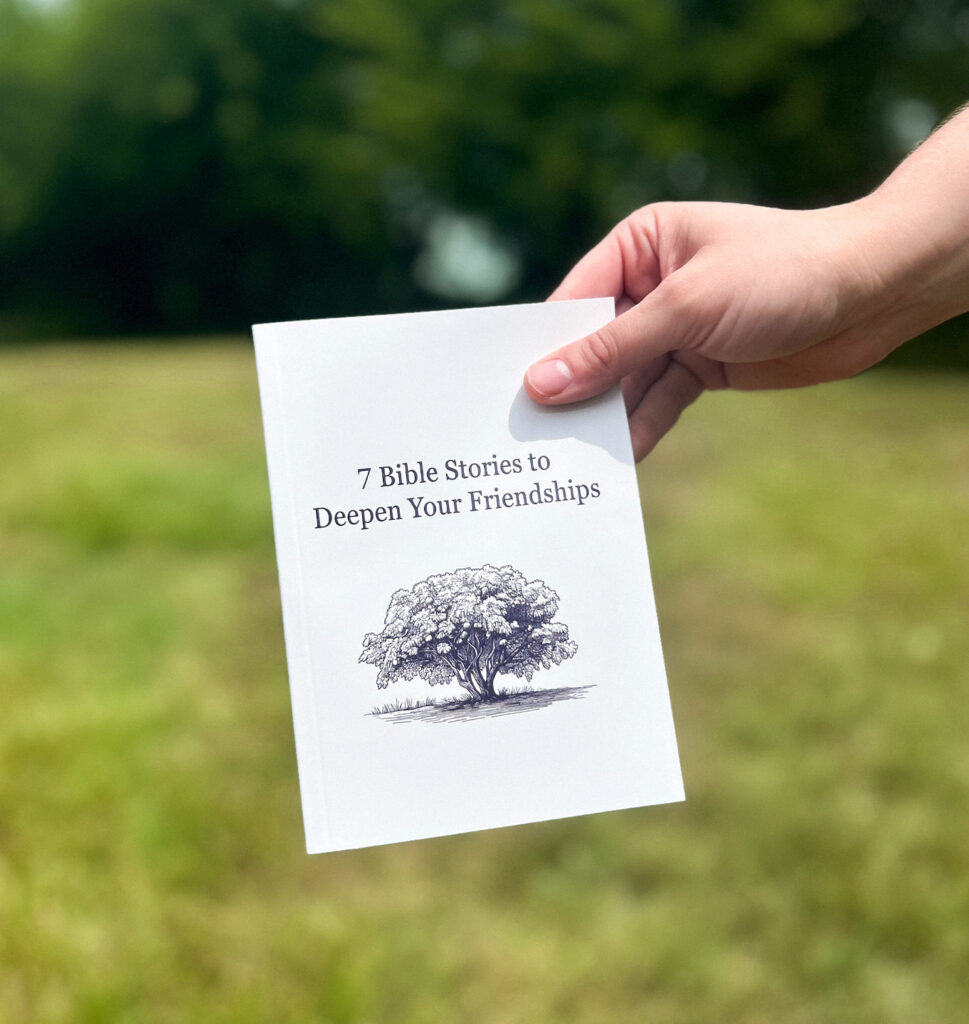“Jesus replied: ‘“Love the Lord your God with all your heart and with all your soul and with all your mind.” This is the first and greatest commandment. And the second is like it: “Love your neighbor as yourself.” All the Law and the Prophets hang on these two commandments’” (Matthew 22:37-40).
In response to the two greatest commandments, the life of a believer should be characterized by two essential actions: devotion to God and service to other people.
The modern church tends to do a good job emphasizing the first—the need for devotion to God. We talk about ways we can grow closer to him through prayer, going to church, and studying the Bible, etc. But often, service to others can be treated as a bonus option for “super-Christians.”
Yet God’s word bundles them as a package of behaviors that all Christians should live out— and not because our good deeds earn our salvation, but because they bring glory to our Father in heaven and are the natural expression of a redeemed life (Matthew 5:16).
While obedience to God’s command is a valid reason to serve others, service also changes us for the better. People who serve others have a stronger sense of meaning and purpose, better mental health, and more personal growth.
For many of us, realizing that serving others is just as central to our faith as prayer and worship can be a big shift in perspective. We might respond by zealously scheduling shifts at local soup kitchens and handing a few dollars to panhandlers. Our compassion is stoked, and hearts are warmed in its flame.
But unfortunately, even if these actions make some difference, this doesn’t go far enough. You can think of compassion as a fuel that drives charitable action. Just like the purest fuel won’t get you very far in a broken-down vehicle, compassion alone won’t lead to effective charitable efforts.
This isn’t any different than our works of devotion, which also require some level of understanding and training. For example, Jesus’s disciples asked him to teach them to pray, and he gave them a model—the Lord’s Prayer—which still shapes how we pray today. A new Christian might eagerly read the Bibe, but could misinterpret it, leading to confusion. Maturing in our faith means not only “doing something,” but learning to do it well for better outcomes.
It’s the same with our works of mercy. Scripture not only motivates us to serve but provides guidance on how to serve effectively.
One key principle is understanding who we need to serve. The Bible mentions many specific categories such as widows, orphans, the sick, immigrants or strangers, and the poor. Our priorities begin with the people closest to us, like our family and local church congregation, and extend to total strangers at the end of the earth.
Another foundational idea is that different types of needs require different responses. For example, someone who lost their home in a fire needs immediate relief, while someone struggling with chronic unemployment may need mentorship or job training. One way to tell the difference is by considering whether the person in need has the capacity to improve their own situation.
There are many biblical examples of the latter—caring for the poor in ways that empower and teach self-sufficiency, rather than just providing temporary relief. One can be found in the Mosaic law, which instructed farmers to leave some crops unharvested as a means of providing work for the poor to find the food they needed (Leviticus 19:9-10).
On the other hand, take Jesus’s story of the man lying on the road to Jericho in Luke 10:25-3. He physically couldn’t do anything to help himself. So, the good Samaritan did the initial work to get him on the road to recovery.
Similarly, when Paul writes to Timothy about how the church should care for widows, he makes various distinctions based on their ability—or their families’ capacity—to improve their situation. In this case, Paul forbids providing one-way relief to people who should be taking steps to help themselves, and even those who received assistance were expected to pay forward the generosity to the best of their ability (1 Timothy 5:3-16).
This isn’t to say that people with more capabilities don’t need help, or that they shouldn’t receive assistance at all—just that the type of support they are given should look different. For people who have the capability, the goal of charity should be to restore them to healthy relationships. It ought to also draw out their potential as contributing members of the community, which is rarely accomplished only by providing their material needs. The prodigal son was hungry, but he needed more than a box of food to make his story end well (Luke 15:11-32).
It’s also important to remember the Bible recognizes that plenty of instances of poverty are caused by some form of oppression or injustice, in which case advocacy is an important part of the solution. In the parable of the unjust judge, Jesus talks about a widow who didn’t need financial aid, she needed legal help to stop her oppressors (Luke 18:1-8).
God’s truth is radical to every generation. When Paul was writing, his concern for the poor was a shock in a culture that believed the poor had less value than the rich. Yet, Paul’s admonition to the believers in Thessalonica who had members becoming idle and disruptive, “If anyone is not willing to work, let him not eat” (2 Thessalonians 3:10), in our day is a strong rebuke to a culture that prides itself on generosity with “no strings attached.”
In the end, our Maker knows that, without wisdom, misguided compassion doesn’t lead to mutual flourishing, but can instead lead to paternalism, dependency, and ultimately misery.
So, how do we actually get to know people’s real needs and challenges? Their abilities and the injustices they’ve faced? The best way is by building a genuine relationship. In situations where this isn’t possible for us personally, we should partner with ministries who take a relational approach that engages people’s abilities along with assessing their needs. In your hometown, such ministries are always in need of volunteers in addition to funding.
Take heart! The road to effective service is well trodden, and the principles and even the effective models of ministry are well known. It’s a road that God’s word calls you to head down, and in serving those in need, you will be serving none other than Christ himself. He deserves our best!
Looking for a way to get started today? Do a web search for relational volunteer opportunities in your community with words like “mentor” and “ally.”



